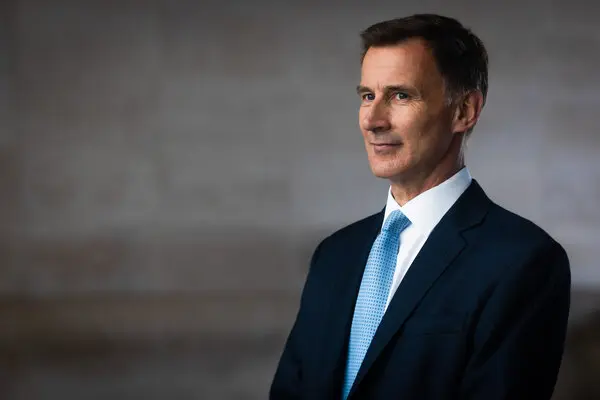Chancellor of the Exchequer Jeremy Hunt delivered an Autumn Statement with sobering news for the UK’s economic outlook. The Office for Budget Responsibility (OBR) has downgraded growth forecasts, indicating an anticipated 0.7% growth in 2024 and 1.4% in 2025. This marks a notable decline from the OBR’s previous projections of 1.8% and 2.5%, respectively.
The revised economic forecasts present a significant challenge for Chancellor Hunt and Prime Minister Rishi Sunak, particularly as they aim to narrow a considerable poll gap ahead of an expected general election in the coming year. Hunt has emphasized the statement’s focus on growth, acknowledging the need for strategic measures to address the economic challenges.
“Our choice is not big government, high spending, and high tax because we know that leads to less growth, not more,” Hunt declared. “Instead, we reduce debt, cut taxes, and reward work.”
To spur investment, Hunt is expected to extend a 100% tax relief on capital spending and introduce supply-side reforms, including initiatives to expedite connections to the electricity grid and encourage workforce reintegration.
On spending decisions, Hunt confirmed an adjustment to welfare payments in line with September’s inflation figure, alleviating concerns raised by some MPs. Additionally, he maintained the pensions triple lock, opting not to use a lower pay figure for the latest uprating.
Addressing debt concerns, Hunt stated that he would meet his fiscal rule of having debt fall as a share of GDP by the end of the five-year forecast. However, critics, including the Resolution Foundation, have labeled the presented headroom as a “fiscal illusion,” expressing skepticism about the political feasibility of post-election commitments.
Hunt’s plans for the future hinge on tight spending beyond 2024, possibly leading to a decline in the quality of public services. This trajectory suggests that a future government, likely led by Keir Starmer’s Labour, may need to reverse tax measures announced by Hunt to avoid compromising public services.
Under pressure to announce personal tax cuts, Hunt is set to reduce national insurance, but the impact may not fully offset higher bills expected in April due to frozen income tax thresholds.
The government’s optimism has increased following a decline in inflation. Hunt indicated that inflation is expected to fall to 2.8% by the end of 2024, presenting a more favorable backdrop for considering tax cuts. However, this projection remains higher than the OBR’s March forecast, which anticipated a drop to 0.5% by the end of next year.
The Autumn Statement gains heightened significance for Chancellor Hunt amid recent setbacks and challenges faced by the government. It underscores the administration’s efforts to navigate economic uncertainties, reshape fiscal policies, and position itself favorably in the lead-up to an anticipated general election.














